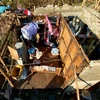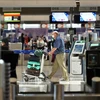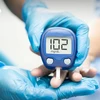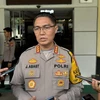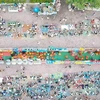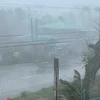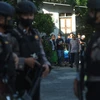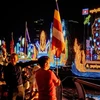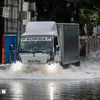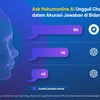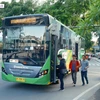Bangkok (VNA/NNT) - Thailand’s Children Hospital has reported a rise in the number of respiratory syncytial virus (RSV) patients year by year. The hospital is asking parents of very young children to be cautious and take precautionary measures against respiratory diseases.
Queen Sirikit National Institute of Child Health, so-called Children Hospital, has reported an increase in RSV cases among its very young patients, with one out of three patients visiting the hospital having RSV and the number of new cases rising every year.
RSV is a respiratory pathogen that causes symptoms similar to cold and flu. RSV infections can go away for adults and older children, but can be especially severe and potentially fatal for children under a year old, as well as the elderly with underlying health conditions.
Dr. Chalermthai Aksilp, a pediatric pulmonologist at the hospital, said very young children can develop severe complications from the mucus which children may not be able to properly dispose of.
He said the same precautionary measures against COVID-19 can be applied to help prevent RSV. This includes mask-wearing and hand hygiene.
RSV tests can be performed with nasal swabs, similar to COVID-19.
The incubation period for RSV is around 3-6 days, and the virus can be active in the host’s body for 8 days. Those diagnosed with RSV are recommended to self-isolate, take a leave from school, take medications, and see a doctor when symptoms do not go away.
Queen Sirikit National Institute of Child Health, so-called Children Hospital, has reported an increase in RSV cases among its very young patients, with one out of three patients visiting the hospital having RSV and the number of new cases rising every year.
RSV is a respiratory pathogen that causes symptoms similar to cold and flu. RSV infections can go away for adults and older children, but can be especially severe and potentially fatal for children under a year old, as well as the elderly with underlying health conditions.
Dr. Chalermthai Aksilp, a pediatric pulmonologist at the hospital, said very young children can develop severe complications from the mucus which children may not be able to properly dispose of.
He said the same precautionary measures against COVID-19 can be applied to help prevent RSV. This includes mask-wearing and hand hygiene.
RSV tests can be performed with nasal swabs, similar to COVID-19.
The incubation period for RSV is around 3-6 days, and the virus can be active in the host’s body for 8 days. Those diagnosed with RSV are recommended to self-isolate, take a leave from school, take medications, and see a doctor when symptoms do not go away.
VNA





